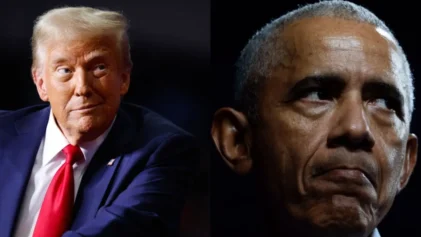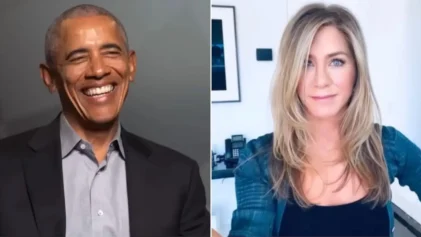While they weren’t willing to discuss specifics, clearly something had changed when President Obama and Republic and Democratic Congressional leaders emerged from their preliminary negotiations to avert the doomsday “fiscal cliff” of tax hikes and spending cuts that observers believe would devastate the economy. The two sides were sharing playful banter and everyone seemed equally optimistic that they would be able to find compromise that could get a deal done.
What might have been the difference?
Hmm. Perhaps it had something to do with the thorough butt-whupping that President Obama put on Republican Mitt Romney in last Tuesday’s election? By beating Romney 51-48 percent in an election that largely came down to the president convincing the American people that the wealthy needed to shoulder a heavier burden in increasing government revenue, the White House appears to have chastened the Republicans in the House and the Senate into finally accepting the probability that they will have to accept some tax increases on the rich to avoid sending the country plunging off that fiscal cliff.
For the first time that anyone could remember in ages, Republicans said they were willing to accept some increases in revenue in a budget deal, rather than just slashing spending and closing those nebulous “loopholes” that Romney kept talking about but refused to detail. That means tax increases, folks.
The potential tsunami known as the fiscal cliff that could take $2,000-3,000 out of the pockets of the average American is a confluence of the expiration of the Bush tax cuts, the expiration of President Obama‘s 2 percent payroll tax cut, and a huge cut in government spending, all set to go into effect at the end of the year and which would take a combined $800 billion or so out of the U.S. economy at a time when the nation is just recovering from the Great Recession.
Ironically, the enormous cut in government spending—including a $55 billion reduction to the Pentagon’s budget in 2013, a reduction of payments to physicians participating in Medicare, substantial cuts to FEMA and the Dept. of Education—was put in place by the White House and Congress during the 2011 debt-ceiling fight as a measure to force the two sides to compromise in order to stop the cuts from taking place. In other words, the two sides agreed to massive cuts that it never intended to let happen as a way of motivating itself two years later.
The question now is, Did this strange motivating tool work? Will the two sides now come together and prevent an economic catastrophe—or will they let Americans suffer because of their deep dysfunction, sending the economy back into a tailspin?
From all indications, they were both talking the talk of compromise yesterday.
According to the Washington Post, the four Republican and Democratic leaders of the House and Senate were unanimous after today’s negotiations in saying they were confident that they could agree on measures to raise federal revenue and cut spending before a Jan. 1 deadline, when the draconian provisions originally designed to force a compromise are scheduled to take effect.
At least on Wall Street, the happy talk had a instant effect: Immediately after the White House meeting, U.S. stocks shot up, going from negative to positive in a matter of minutes with the Dow Jones industrial average rising 113 points, gaining nearly 1 percent.
House Speaker John Boehner said in the meeting the GOP side agreed to “put revenue on the table as long as it’s accompanied by significant spending cuts,” he said.
“While we’re going to continue to have revenue on the table, it’s going to be incumbent for my colleagues to show the American people that we’re serious about cutting spending and solving our fiscal dilemma,” Boehner told reporters. “And I believe that we can do this and avert the fiscal cliff that’s right in front of us today.”
Senate Minority Leader Mitch McConnell (R-Ky.) added: “We’re prepared to put revenue on the table provided we fix the real problem.” He noted, however, that “most of my members, I think without exception, believe that we are in the dilemma we’re in not because we tax too little but because we spend too much.”
They had to get in their little digs, but they’re still sounding much different than they were two weeks ago. That’s what an election beat-down will do—suddenly the losers remember how to spell compromise.
For his part, President Obama has said he is open to compromise—as long as it doesn’t entail Republicans trying to extend the Bus tax cuts for those making over $200,000.
House Minority Leader Nancy Pelosi said she wants to have a deal done before Christmas.


